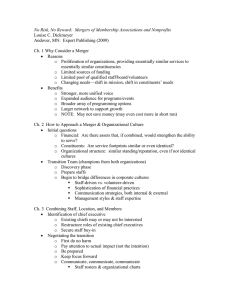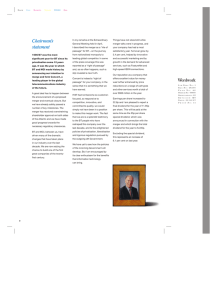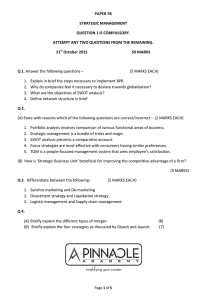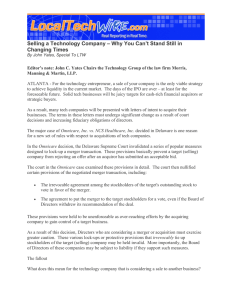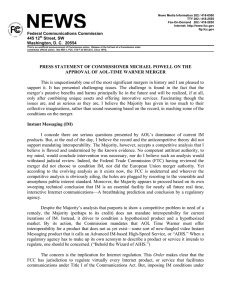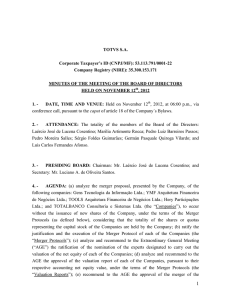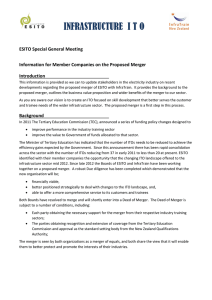15.617, Spring 2004 John Akula Lecture 7: 2/25/04
advertisement
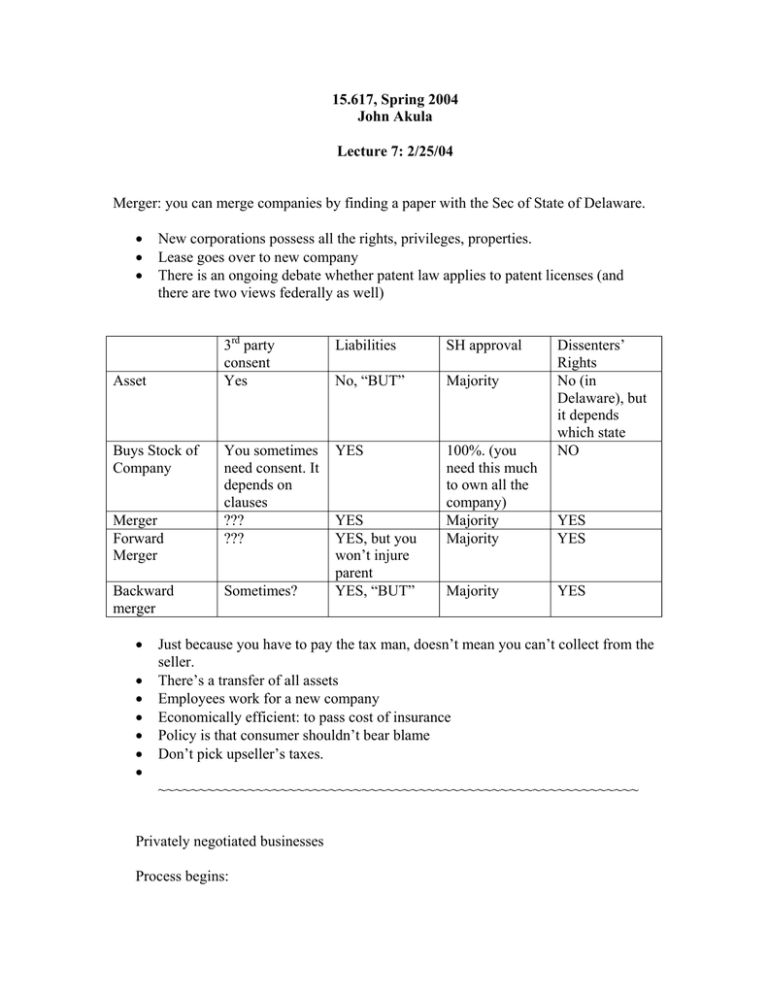
15.617, Spring 2004 John Akula Lecture 7: 2/25/04 Merger: you can merge companies by finding a paper with the Sec of State of Delaware. • New corporations possess all the rights, privileges, properties. • Lease goes over to new company • There is an ongoing debate whether patent law applies to patent licenses (and there are two views federally as well) Asset Buys Stock of Company Merger Forward Merger Backward merger 3rd party consent Yes You sometimes need consent. It depends on clauses ??? ??? Sometimes? Liabilities SH approval No, “BUT” Majority YES 100%. (you need this much to own all the company) Majority Majority YES YES Majority YES YES YES, but you won’t injure parent YES, “BUT” Dissenters’ Rights No (in Delaware), but it depends which state NO • Just because you have to pay the tax man, doesn’t mean you can’t collect from the seller. • There’s a transfer of all assets • Employees work for a new company • Economically efficient: to pass cost of insurance • Policy is that consumer shouldn’t bear blame • Don’t pick upseller’s taxes. • ~~~~~~~~~~~~~~~~~~~~~~~~~~~~~~~~~~~~~~~~~~~~~~~~~~~~~~~~~~~ Privately negotiated businesses Process begins: 1.) handshake, agreement on price. Phone to call to lawyer: “We’ve agreed to busy business B for $x.” 2.) Letter of Intent, LOI, (no need to have it). But, it’s a good thing psychologically. There are some provisions, but for the most part is just milk toast. (Refer to handout) Part 1: not-bindingÆ not much substance Part 2: Paragraph B: Seller isn’t going to shop, as buyers does its homework. • People are very positive during the time of LOI • Nothing needs to be spelled out in detail, but there should be important points that may be helpful to you later on. 3.) Due Diligence: the selling company gathers up all the papers that relates to its company. • Acquisition page checklist page 6: includes contracts, surveys. • Don’t’ hide the fact to employees that you are thinking of selling. If many sales, the CEO should sell each smoothly, do its homework, and avoid the disruption. • Fixed asset list (Professor said to ignore this part) • Buyer may insist on having their sellers’ financial records audited. But this auditing isn’t a huge concern. They will look at tax reforms, because you get a conservative income. • Organization schedules: the meat of the story is told in the disclosures schedule: listing of contracts, law suits, employee-benefit plans • Sellers are confused about the “schedule thing” • If an important contract isn’t in the scheduleÆdoesn’t count. • Schedule is being prepared while most the agreements are • Schedule may get a lot of people making additions Æ lots of changes can mess up things. • How long between LOI and signing agreement? o 6 weeks (but they are getting longer, but not because they are getting complicated) o Mahoney thinks its technology’s fault. The speed of which people are trying to do things is causing careless errors. • If one doesn’t fall covenants, one get sued. • It takes 30-45 days between signing and closing, because you’re getting regulatory approvals (filing papers, mechanical nature things).



